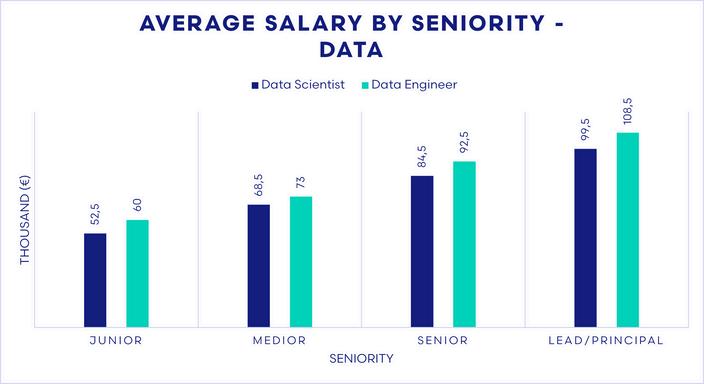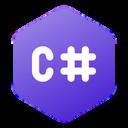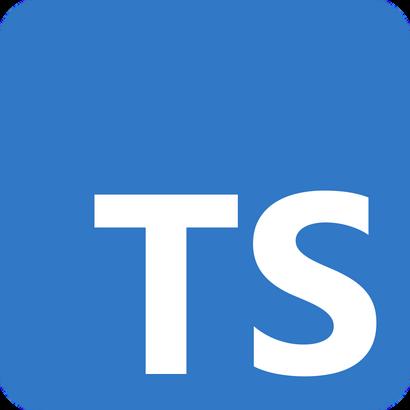




Hi!
We’re excited to be back with our 2024 technology market & salary insights report.
In this report, we’ll discuss the trends and insights we’re seeing for the rest of 2024, into 2025.
The information in this report has been gathered through surveys to our candidate network, and backed up with our own knowledge and expertise of the market.
We hope you find the information insightful and useful, if you have any questions on anything you read in the report, please do not hesitate to get in touch.



We surveyed candidate n When it com expected, N with 53% of there Addit accounts for 14% of the respondents, and Utrecht comes in at 9 5%



We asked respondents to identify the top 3 programming languages they use day-to-day.
It's no surprise that JavaScript, Java, and Python came out as the dominant programming languages, likely favored by companies for their robustness and versatility.
The significant popularity of C#, C++, and TypeScript is possibly because of their pivotal roles in advancing AI, machine learning, and scalable web applications The below graph illustrates their strategic importance and increasing demand.
In addition to the more prominent languages, others continue to play critical roles across various domains. Their popularity is likely due to thier strengths in automation, web development, and data processing

Survey results reveal key trends in developer salaries Golang developers lead in compensation, indicating robust demand for Go skills. This demand is driven by Golang's popularity in cloud-native applications and its growing traction in the FinTech and streaming sectors Python developers also command strong salaries, reflecting their versatility and its significant role in AI and machine learning
Typescript and JVM roles offer competitive pay, underscoring their value in modern development In contrast, PHP and Ruby developers see lower salary ranges, suggesting niche and perhaps decreasing demand
This year, we've observed a shift in the demand for tech leadership positions, as companies aim to streamline operations by reducing headcount and consolidating leadership roles
One trend we’ve noticed is the emergence of the CTPO role, where Product and Tech leadership are combined under a single person.
While traditional roles decrease, demand for very senior individual contributors, like Staff Engineers, rises
Consequently, we anticipate that salaries for these roles will see steady YoY increase




Tech companies are focusing more on user experience, design, and accessibility, showing how crucial strong UI/UX skills are as users become less patient with poor interfaces.
While there's still a demand for advanced product management and UX/UI skills, keeping salaries competitive is getting tougher in today's market
Android Developers demonstrate salary growth from junior to lead/principal levels iOS Developers show a similar trend, indicating demand for expertise on major platforms React Native Developers have competitive salaries across all levels, reflecting the need for cross-platform skills.
The demand for mobile developers remains, but companies are being increasingly strategic in their hiring to adapt to the current economic climate


The demand for platform engineers and DevOps specialists is reflected in their competitive salaries. They have become integral in ensuring that systems remain robust and scalable
The implementation of DevOps and platform engineering practices significantly enhances operational efficiency, reduces time-to-market, and improves product quality, driving demand for skilled professionals who can deliver these benefits
We anticipate continued growth in demand for these roles, driven by ongoing technological advancements and the increasing need for agile, resilient infrastructure.

Companies are increasingly focused on integrating QA processes to optimise costs and enhance system reliability, yet the enthusiasm for hiring professionals with advanced skills in automation and compliance is tempered by budget constraints.
This conservative approach reflects a market where the demand for these specialised skills is not as robust, prompting businesses to carefully weigh the benefits of competitive salaries against the need for fiscal prudence
We expect a gradual increase in demand for QA skills as industry needs evolve and budgets adjust


Data Scientists and Data Engineers are becoming increasingly important as companies focus on using advanced analytics and AI
The demand for these roles is growing, leading to higher salaries as businesses fight to attract top talent to drive innovation and stay competitive
We’re seeing many businesses looking to use data as a key part of business strategy, making these roles more in demand than ever.

The demand for specialised Machine Learning skills is driving salary growth. For scaling companies, ML engineers are key for crafting custom solutions that integrate AI
However, the rise of LLMs like GPT and Llama poses a counterargument: their growing sophistication questions the need for ML engineers Despite this, LLMs often lack flexibility for unique challenges, highlighting the value of engineers who can innovate beyond generic models
As companies consider these options, ML role salaries are expected to rise YoY


Over the past year, the Dutch fintech sector has shown impressive resilience, even amidst broader economic challenges The Netherlands, now the EU's second-largest fintech industry, hosts over 850 fintech companies and continues to lead in innovation, particularly in AI and blockchain Despite a 25% decline in overall VC investment in 2023, fintech, along with health and enterprise software, remains a top industry, accounting for 40% of total investment in key regions like Noord Holland
Statically typed languages are increasingly favoured in the tech industry, likely driven by the growing demand for reliable and secure fintech solutions As fintech expands, particularly in volatile areas like cryptocurrency, these languages are increasingly favored for their ability to handle complex transactions with precision and robustness
Fintech companies often choose statically typed languages because they offer better security, which is important for protecting sensitive financial data and transactions These languages also perform well and scale easily, making them great for handling lots of transactions and complex calculations

Java remains a corners in fintech due to its stab portability, and securit extensively used for bac systems, transactio processing, and large-s enterprise applicatio



Known for its high performance and lowlatency capabilities, C++ is popular for trading platforms, real-time systems, and high-frequency trading applications.

Frequently used with Microsoft ecosystems, ideal for developing tra systems and backen services due to its obj oriented nature and ea use



TypeScript empowers scalable back-end architectures, enhancing code reliability and maintainability for optimal fintech solutions.
Current Offerings (%)
Desired Benefits (%)
Flexible work
Bonus on personal performance
Remote work
Bonus on company performance
Training programs
Tech budget
Pension contributions
Health insurance
Home office budget
Commuting allowance/car
Wellbeing allowance
Educational reimbursements
Meal vouchers/lunches
Hackathons
Relocation support
Employee discounts

The chart showcases our findings of overall trends in employee benefit preferences, highlighting a strong demand for flexible work and a desire for greater alignment between current offerings and employee expectations.

successful, it s important to set clear boundaries for employees
Our survey reveals that 34% of respondents receive bonuses tied to personal performance, while 54% desire them. Company performance bonuses are more common, with 46% offered and 50% of respondents interested
It's important to acknowledge here that while these incentives are sought after, balancing them with available resources can be challenging.
With budget constraints, high expectations for financial perks rooted in the tech boom persist among respondents Our results highlight the need for transparency and open communication in managing these expectations.
The demand for training programmes is evident, with 60% of respondents seeking to enhance their skills. Offering flexible opportunities or a personal development budget can boost employee sentiment and skill growth, benefiting the organisation as a whole

JavaScript, Java, and Python are the top programming languages
C#, C++, and TypeScript are also highly valued, especially in AI, machine learning, and scalable web applications.
Golang developers command the highest salaries, driven by demand in cloud-native applications and FinTech
Python, TypeScript, and JVM roles also offer competitive pay.
PHP and Ruby developers see lower salary ranges, indicating niche demand.
Android and iOS developers show salary growth from junior to lead levels. React Native developers have competitive salaries, reflecting the importance of cross-platform skills
High demand for DevOps specialists and platform engineers, with competitive salaries.
Cautious compensation strategies for QA roles due to budget constraints, despite the need for advanced skills in automation and compliance
Increasing demand and higher salaries for Data Scientists and Data Engineers
Businesses are leveraging data analytics and AI as key components of their strategy to drive innovation and competitiveness
Preference for flexible and hybrid work highlights the importance of adaptable work arrangements
Desire for performance bonuses underscores the need for transparent communication from companies around budget constraints.
Strong demand for continuous learning programs suggests the value of skill development opportunities.

We’re trusted advisers to hundreds of tech companies across the Netherlands, assisting them with their tech recruitment needs. If you’re looking to hire in tech, or want more information about what you’ve read in this rep t
get in touch

